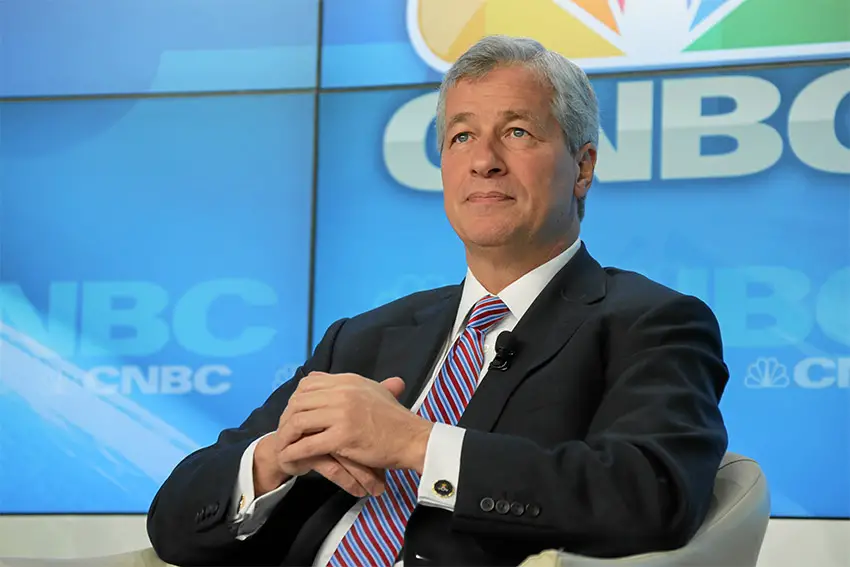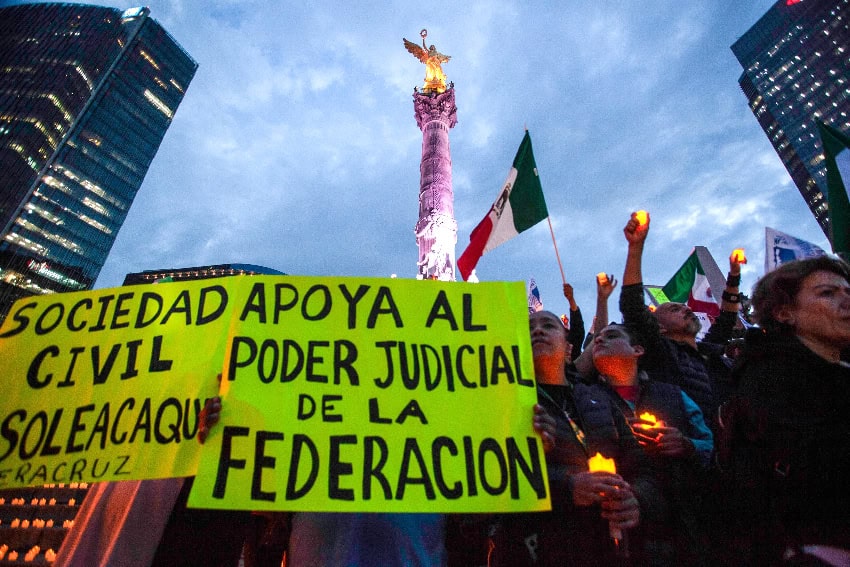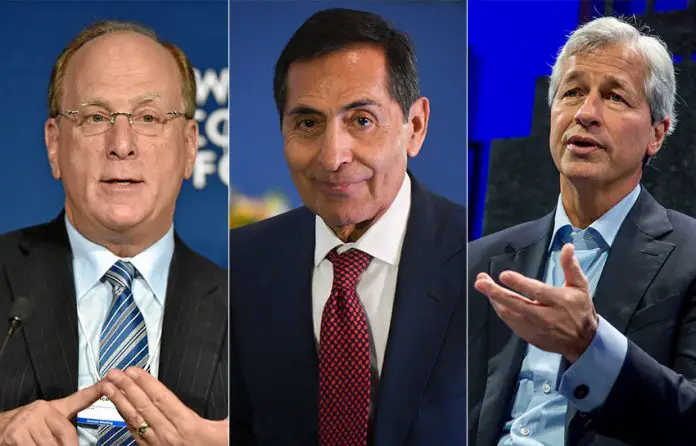Finance Minister Rogelio Ramírez de la O met with two prominent American CEOs in New York on Thursday, seemingly signaling that the new federal government intends to be very proactive in seeking new investment in Mexico.
Ramírez met separately with JPMorgan CEO Jamie Dimon and BlackRock CEO Larry Fink, according to Bloomberg News, which cited unnamed people with knowledge of the meetings.
Bloomberg reported that the meetings occurred at a time when the government of new President Claudia Sheinbaum “is eyeing the change in administration as an opportunity to jumpstart investment.”
Mexico is seeking to benefit from what has been described as a “once-in-a-generation” opportunity to attract foreign investment as many companies seek to relocate from Asian countries, particularly China, for a variety of reasons including a desire to be closer to the lucrative United States market.
Despite the nearshoring trend, the level of new investment in Mexico’s foreign direct investment data is currently low. The federal government hopes that will change as the many foreign companies that have recently made investment announcements for Mexico act on their plans.
Dimon said last November that he believed that Mexico was “one of the great opportunities” for investment, and even remarked that “if you had to pick a country this might be the number one opportunity.”

However, investor confidence has declined since Sheinbaum and the ruling Morena party won landslide victories in the June 2 elections, putting them in an extremely strong position to pass constitutional reforms, several of which have been approved since the new Congress commenced on Sept. 1.
Investors, the U.S. government, Mexican opposition parties and others have expressed particular concern about the government’s judicial reform, which was signed into law by former President Andrés Manuel López Obrador just before he left office last week.
The most controversial aspect of the reform is the provision allowing citizens to directly elect judges, including Supreme Court justices. Critics of the reform argue that judges sympathetic to Morena’s agenda could come to dominate the nation’s courts, effectively eliminating a vital check on government power.
For her part, Sheinbaum has asserted that investors have nothing to worry about, and will meet with representatives of 45 large companies at the U.S.-Mexico CEO Dialogue this coming Tuesday to convey that message in person.
The president will also explain to them “how the judicial reform will work,” according to Economy Minister Marcelo Ebrard, who, along with Foreign Affairs Minister Juan Ramón de la Fuente, defended the reform in an op-ed recently published in the Washington Post.
While the nature of the talks Ramírez held with Dimon and Fink is not public, it would appear likely that he sought to reassure them that Mexico remains a good place to invest.
The JPMorgan CEO said late last year that the bank he leads has “doubled or tripled” its investments in Mexico “in the last six years.”

BlackRock, a New York-based investment company, also has interests in Mexico, “where it sells products to the country’s pension funds and acquired the asset management business of Citigroup’s Citibanamex unit in 2018,” according to Bloomberg.
During the previous term of government, Fink met on several occasions with López Obrador, the main architect of the judicial reform and other constitutional bills that are causing concern for investors and potential investors.
Among those proposals is an energy reform that would ensure that the state-owned Federal Electricity Commission has majority participation (54%) in national electricity generation, and a reform that would disband a number of autonomous government agencies, giving their responsibilities to ministries or other departments that are ultimately under the control of the president.
Beyond current and proposed laws, insecurity, insufficient infrastructure and a lack of water and electricity are seen as barriers to greater foreign investment in Mexico.
On the other hand, there are various factors that make Mexico a very attractive place to invest, including its proximity to the United States, its free trade agreement with the United States and Canada, affordable labor and the presence of a young, educated workforce.
Ebrard recently said that “what Mexicans have to do is speak well of our country” in order to attract investment, while Sheinbaum, in her first speech as president, pledged to “take advantage of the trade agreement with the United States and Canada to continue promoting the relocation of companies.”
Shortly before the new government took office, Vidal Llerenas, now a deputy economy minister, said that foreign direct investment in Mexico could increase by US $3 billion to $4 billion each year during Sheinbaum’s six year term.
If that is to become a reality, confidence in Mexico from CEOs such as Dimon, Fink, Elon Musk and many others will be essential.
With reports from Bloomberg
